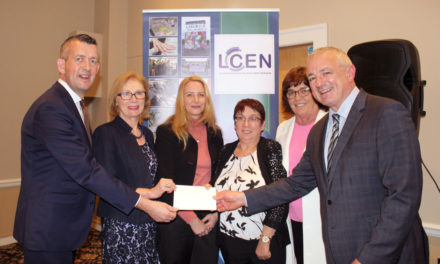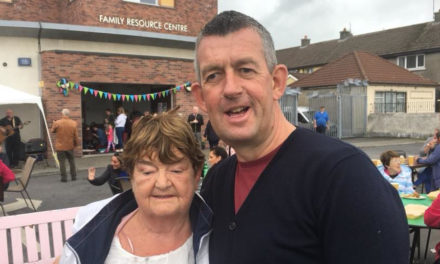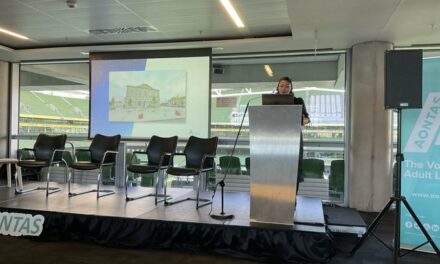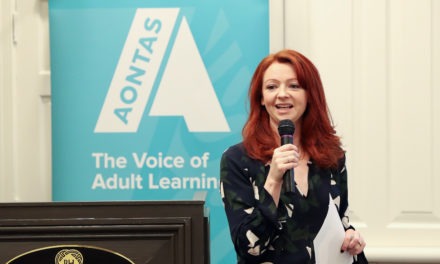The tech sector is vast and growing, but it has a reputation for leaving some members of society behind. Here’s why we need to play a part in changing that.
In 1956, when computers were still a relatively recent innovation, fledgling company IBM – fresh from the development of its first big seller – set up shop in Ireland.
That was just the start of Ireland’s tech boom, representing the first tentative steps towards a mammoth tech sector that, as of 2017, was responsible for 7.5% of direct employment on the island. Ericsson followed IBM, then came HP, Microsoft and Oracle, leading to an influx of global names like Apple, Google, Facebook and Airbnb that would put this small European outpost and its ‘Silicon Docks’ on the map.
Ireland became a haven for tech jobs and talent, as much at the forefront of future development as Silicon Valley and the US start-up scene, but there was also a massive talent gap, especially in technical roles – there are more jobs going than there are people to fill them.
So, why aren’t communities taking notice?
Why should communities care about tech?
We’ve already seen that tech jobs make up a large portion of Ireland’s workforce, but it can be hard to see exactly why that matters on a community level.
In many ways, it’s quite simple: the skills that young people (and even adults) pick up when studying science, technology, engineering and maths (STEM) subjects – analytical reasoning, fact-based decision making, principles of investigation and innovation, and basic digital ability, among others – are applicable across a wide range of industries.
Or, to put it another way, you don’t have to be considering a career in STEM to find value in studying it.
“Technology is everywhere,” says Giustina Mizzoni, the executive director at global programming club CoderDojo. “It is shaping every industry, from agriculture to healthcare. Technology and the code that powers it have become ingrained in our everyday lives…Even a basic understanding and appreciation can have a profound effect on a person’s life.”
Aoibheann Mangan, the Mayo-based Joint EU Digital Girl of the Year 2017-2018, agrees: “The world is moving at a massive digital pace, and so many of the jobs of today – and even more of the jobs of tomorrow – will require the digital skills you learn when coding or engaging in computational thinking.”
It’s about growth
There’s a trickle-down effect, too. As tech becomes more and more a part of daily life, those who are not among the ‘tech-savvy’ become increasingly at risk of isolation – not in a physical sense, but a societal one.
Dialogue and conversation have moved largely from face-to-face and phone-based exchanges to messaging services and social media sites; basic tasks like managing finances and dealing with service providers now often require an understanding of the internet; applying for jobs, booking holidays and even grocery shopping have moved online. An understanding of tech, therefore, can be as much a matter of necessity as convenience.
Because of this, giving members of a community a grounding in tech can make them more connected and less susceptible to exclusion. It can also help to grow communities in a more literal sense: when tech skills are developed, it opens up possibilities for tech businesses and startups in the community, makes members more employable in roles that require tech abilities, and encourages others in the community to learn themselves.
Tyrone’s Sheree Atcheson, founder of Women Who Code UK and technology respect and inclusion manager at Deloitte UK, understands this better than most: “My own personal experience has shown that a career in STEM not only makes a difference in my life, but in the lives of others. Using my STEM background, I have been able to form a career that sees me impacting thousands of lives and creating an industry that is better for all.”
So how do we get there?
This idea of empowering communities through tech is one of the founding principles of a programme called #techmums, which aims to make mothers part of the digital revolution.
Founded by Dr Sue Black, who used tech education to pull herself and her family out of poverty, the programme helps mothers to harness the potential of technology in order to play a part in humankind’s shared digital future. In short, it allows these women to be included.
A fringe benefit of this is that it goes a long way to demystifying tech for younger members of the community. As Aoibheann says, “If I cannot see it, I cannot be it.” – a succinct way of saying that if people do not see a path for them that has been successfully followed by others, they will not attempt to walk it.
There are other ways that path can be shown. At last year’s Inspirefest – an annual science, technology and the arts event with a focus on diversity – the crowd heard from Dr Anne Looney, executive dean of Dublin City University’s Institute of Education and the CEO of the National Council for Curriculum and Assessment from 2001 to 2016.
“We need [teachers] to be innovators, adventurers and seekers,” said Looney. “We need them to be activists…We want to prepare teachers to model what we need children to be.”
And yet schools can only do so much. It is in the hands of communities (from families right up to national organisations) to ensure that no one gets left behind and that everyone is prepared to exist in our shared digital future.
Interested in supporting tech education in your community? Check out our list of programmes and resources – they could be a good place to start.
Want to read more about the state of Ireland’s community development sector? Check out our latest issue.





